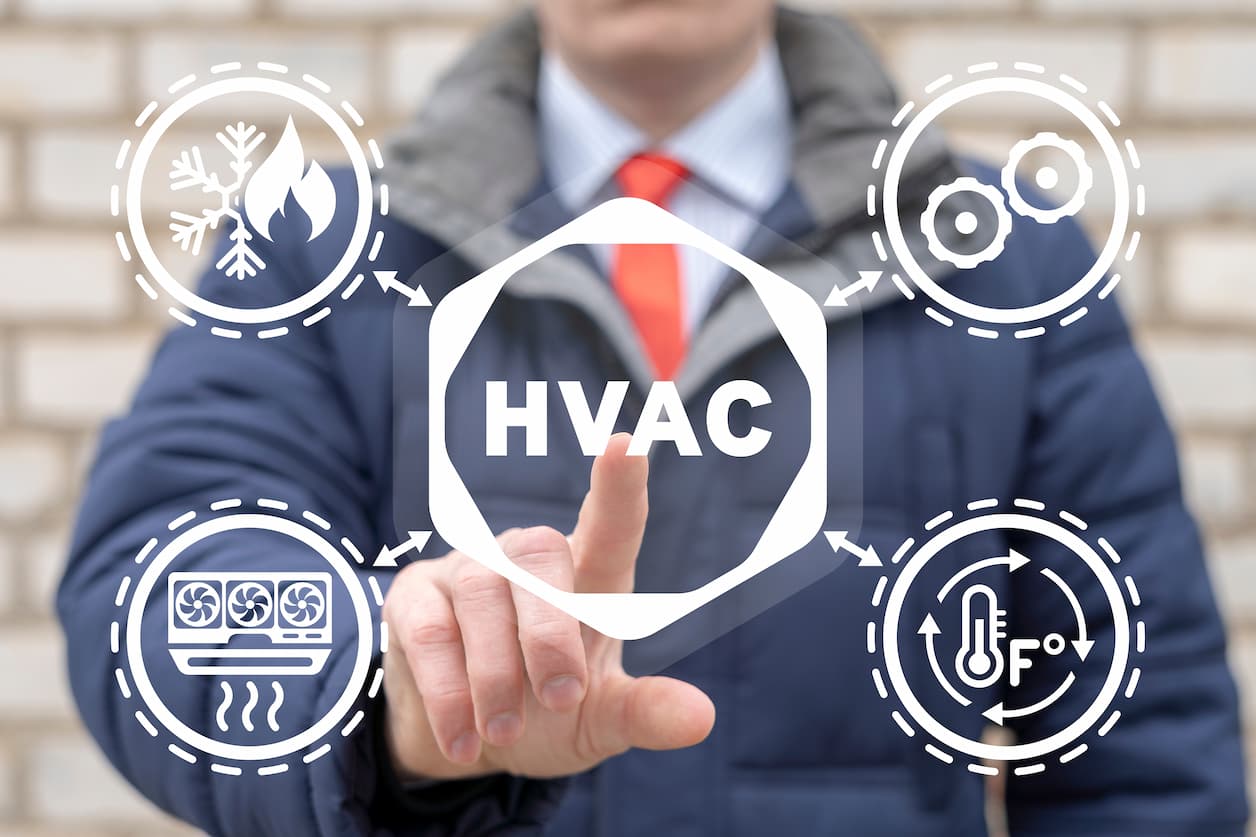As we stand on the precipice of a new era in heating, ventilation, and air conditioning (HVAC), it becomes increasingly important to understand the transformative trends shaping this industry. The future of HVAC is not only about enhanced efficiency and sustainability, but also about the incorporation of cutting-edge technologies that redefine our interaction with these systems. From smart thermostats to AI-driven analytics and eco-friendly alternatives, this article explores the exciting trends that are set to define the future of HVAC, offering a glimpse into what’s next in the realm of indoor climate control.
1. Smart Home Automation Takes Command of Your System
For those who elect to downsize or otherwise seek a more affordable HVAC solution, smart home automation can provide them with greater comfort at an affordable price.
Utilizing an advanced system that connects to your HVAC unit and other nearby devices, a smart home automation system can optimize its performance by intelligently adjusting temperatures and controlling lighting in response to user activities. It’s a great way to save money without sacrificing convenience or quality!
2. Aging Homeowners and Their Comfort Priorities
In an age when homeowners are beginning to contemplate the potential cost savings of new construction over upgrading existing homes, it can be rather jarring for them to learn that their heating and cooling systems may not have been in such high demand when they first purchased their homes.
This trend is indicative of a growing cohort of consumers who are seeking out higher levels of comfort and convenience within their dwellings. As the average lifespan of Americans continues to increase there will be even more individuals looking to acquire HVAC equipment that provides just that!
3. Ductless HVAC Will Continue to Grow
These systems, often referred to as mini-split systems, bypass the need for extensive ductwork and offer direct heating or cooling to individual areas or rooms. They provide homeowners and businesses alike the advantage of zoned temperature control, leading to enhanced comfort and energy efficiency. With their simple installation process and reduced operational noise, the prevalence of ductless HVAC systems is poised to see considerable growth in the coming years. The trend towards ductless is more than just a fad; it’s a testament to an ongoing evolution in HVAC technology aimed at optimizing convenience and cost-effectiveness.
4. Home Heat Pumps are Here to Stay
Heat pumps, a versatile HVAC solution that offers both heating and cooling, are solidifying their place in our homes. Their principle of operation, which involves moving heat instead of generating it, makes them an incredibly energy-efficient choice. As homeowners become increasingly conscious about energy consumption and its impact on both their wallets and the environment, the adoption of home heat pumps is on a steady rise. Their ability to provide year-round comfort, combined with potential for lower utility bills and reduced carbon footprint, are undeniable benefits that ensure heat pumps are not just a passing trend, but a mainstay in home climate control solutions.
5. AI Meets HVAC
The integration of Artificial Intelligence (AI) in the HVAC industry represents a dynamic intersection of technology and comfort. AI’s data-driven capabilities are revolutionizing how we control and interact with our HVAC systems. Predictive analytics, energy optimization, and smart diagnostics are just a few of the AI-enhanced features that streamline HVAC operations. With smart thermostats that learn from our behavior and AI-powered systems that can preemptively detect faults and perform maintenance activities, this intelligent blend of AI and HVAC heralds a future where our indoor climate control becomes more efficient, responsive, and intuitive. This emerging trend underlines the transformative potential of AI, shaping a new era in HVAC technology.
6. Energy-Conscious Construction
Constructing projects with an eye toward efficiency can yield significant benefits for HVAC systems, translating into lower energy consumption and cost savings. This is particularly true for large-scale construction projects, such as those that take place in high-rise apartment buildings and office complexes alike, their occupants require a great deal of comfort during their stay!
In the recent past, builders were reluctant to employ energy-efficient building materials, like insulation or highly-insulated windows, due to practical concerns over installation costs and durability. But with technological advancements revolutionizing the industry at every turn, these concerns have become obsolete! Today’s leading hvac system components are becoming more accessible than ever before, thus allowing for more efficient design options without sacrificing aesthetics.
7. The Cloud is Your Friend
Another trend in HVAC that is sure to make a presence in the coming years is cloud-based systems. These tools provide convenient, on-demand access when you require it most, with no need for constant updating, just simply log into your account!
This makes it simpler for homeowners and businesses alike to maintain their air conditioning systems without having to bother with the hassle of frequent updates or repairs. Cloud-based HVAC systems can even be accessed from anywhere in the world via an internet connection.
With so much convenience offered by these systems, it’s no wonder why they are quickly gaining ground among homeowners.
Embracing HVAC Innovation
As we gaze into the horizon, the future of HVAC undoubtedly appears intriguing and promising. The rapid technological advancements and innovative trends that we’ve explored paint a picture of an industry on the cusp of significant transformation. From AI-driven automation and predictive maintenance to energy-efficient designs and the integration of renewable energy sources, these evolving trends are set to redefine our understanding and interaction with HVAC systems. As we move forward, our challenge will be to seamlessly integrate these technologies into our daily lives, ensuring they make our homes and businesses more comfortable, energy-efficient, and eco-friendly. The future of HVAC is not just about cooling and heating spaces but about leveraging these advancements to create smarter, more sustainable living and working environments.

